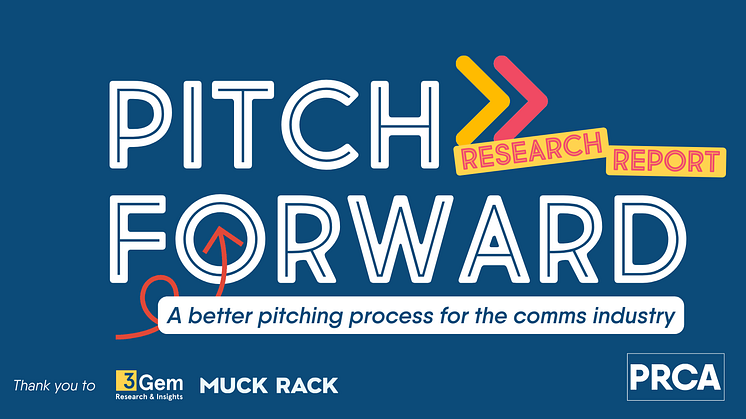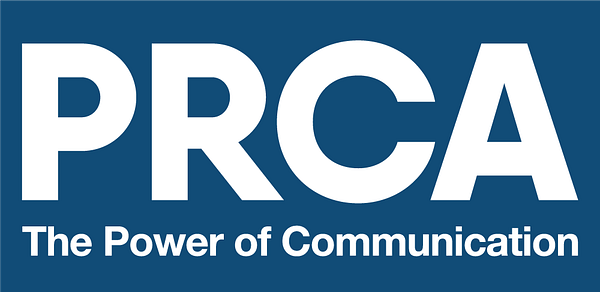
Press release -
PRCA research report confirms financial strain and ethical pitfalls in pitch process
PR agencies pitching for new business face budget uncertainty, ghosting and intellectual property misuse. That’s the conclusion of a comprehensive report published today by the Public Relations and Communications Association (PRCA) as part of its Pitch Forward initiative. Although the financial and ethical challenges of pitching have long been acknowledged within the industry, today’s report lays bare the issues in unprecedented detail. The report addresses the financial burden of pitching, project abandonment, intellectual property (IP) misuse, and the growing influence of procurement teams. It will set the agenda for PRCA’s work on pitch process improvement.
Drawing on industry-wide quantitative data, the report highlights the pressing need for a more streamlined, transparent, and ethical approach to the client-agency relationship, as many agencies are struggling under the strain of a process that is often inefficient and exploitative.
Financial and resource burden of pitching
The report reveals that 40% of agencies spend between £1,000 and £5,000 per pitch, with an average investment of £7,165. Some agencies, particularly for more complex campaigns, spend upwards of £20,000 per pitch, which puts an immense strain on resources, especially for smaller agencies. This underscores the urgent need for more efficient and ethical pitching processes that reduce this financial burden.
Budget Transparency
The report underscores the importance of budget transparency in the pitching process, revealing it as a fundamental factor in fostering productive, targeted pitches. When clients provide a clear budget or range from the outset, agencies are better equipped to tailor their proposals in line with the client’s financial expectations. This simple yet often-ignored practice helps prevent agencies from investing excessive time and resources into concepts that may not be financially feasible. By adopting a transparent approach to budgeting, clients can help ensure pitches are not only creative but realistic, leading to more efficient and successful partnerships.
Pitch abandonment: A major source of wasted resources
Another major issue confirmed by the report is the frequency of winning pitches that never materialise into actual projects. 36% of respondents reported experiencing this at least 1-2 times, and on average, agencies won 4.4 pitches in two years that did not result in work. Only 5% of respondents had never faced this problem, indicating it is widespread across the industry.
The report calls for clearer client commitments and better internal alignment before agencies are asked to pitch to curb the waste of resources.
Intellectual Property misuse
The report reveals troubling data on the misuse of intellectual property, with 49% of agencies stating they have experienced IP theft during the pitching process. In fact, 77% of agencies experience this 1-2 times annually, as clients use agency ideas without awarding contracts. This undermines trust and fairness in the pitching process and puts agencies at risk of losing their valuable creative work.
Procurement vs. Marketing-driven pitches
The growing involvement of procurement teams in the pitching process has also become a significant concern. The report shows that 43% of agencies believe procurement-led pitches have increased, while 40% indicate that responsibility is now shared between procurement and marketing/communications teams. Only 16% report that marketing is still the primary driver of pitches.
There is growing concern that the cost-driven focus of procurement is overshadowing the creative aspects needed to build strong agency-client partnerships.
The path forward: Improving the client-agency relationship
Based on the survey responses and qualitative insights, the report outlines key areas where clients can improve the briefing process to ensure more productive and effective pitches:
- Budget Transparency: Providing a budget or at least a range can help agencies tailor their proposals appropriately and avoid wasted effort on ideas that are financially unviable.
- Clear and Specific Objectives: Including SMART objectives in briefs ensures that agencies have a clear understanding of the client’s goals and can propose targeted strategies.
- Involving Key Decision-Makers: Clients should ensure that all relevant stakeholders are involved in the briefing process from the outset to avoid miscommunications or changes in direction.
- Streamlining Procurement Processes: Simplifying procurement requirements and shortlisting agencies earlier in the process would save time and resources for both clients and agencies.
PRCA will now produce resources to support agencies and clients to overcome these issues, including a code of conduct.
PRCA CEO, James Hewes, said:
"New business processes are fundamental to healthy business growth and our industry is built on the fantastic relationships we build with our clients. But our 'Pitch Forward' research highlights challenges that have been quietly straining the agency-client relationship for too long. We’ve all known about the problems, but our report sets them out in a systematic way. With agencies investing significant resources into pitches, only for many to go nowhere or see their ideas misused, it’s clear that change is needed. This report provides a roadmap to more ethical, transparent, and efficient pitching processes that will benefit both clients and agencies.”
Head of PRCA Matchmaker, Debbie Little, said:
"At Matchmaker, we see first-hand how the briefing and pitching process can make or break agency-client relationships. The findings of the 'Pitch Forward' report underline the need for clear communication, budget transparency, and the involvement of key decision-makers from the start. We believe these changes are essential for creating stronger, more successful partnerships moving forward."
Download the full report: https://www.flipsnack.com/prcauk/pitch-forward-research-report/full-view.html
Topics
The Public Relations and Communications Association (PRCA) is the trade association for the public relations, public affairs and communications industry. We provide the space in which our members, from all corners of the world, come together to forge a dynamic, forward-thinking, and influential community. We are committed to advancing the field of PR and championing the vital role it plays in our rapidly evolving world.
We are the heartbeat of an industry that shapes perceptions, drives narratives, and fuels communication on a global scale.

